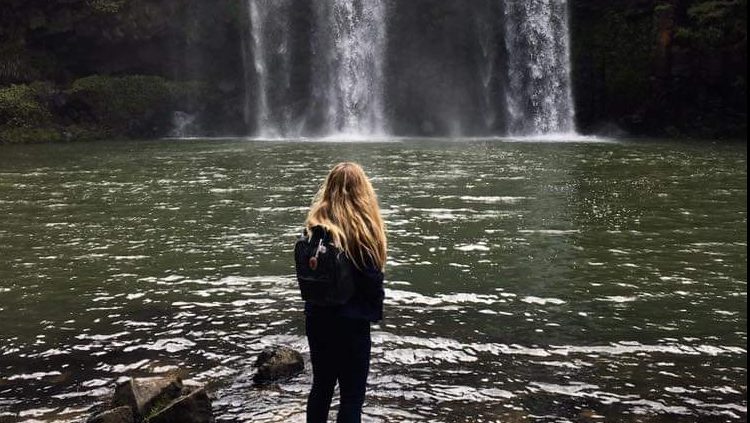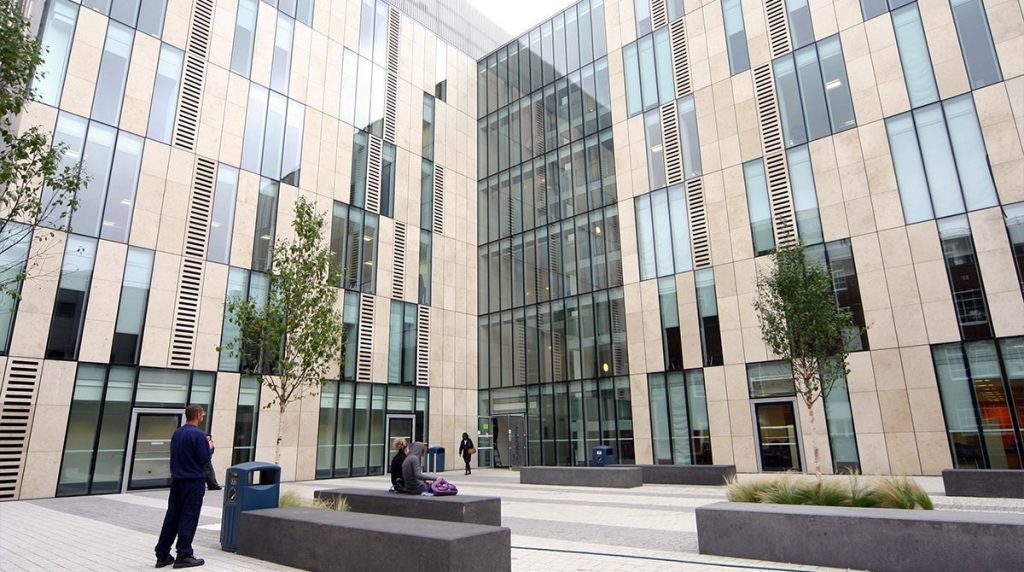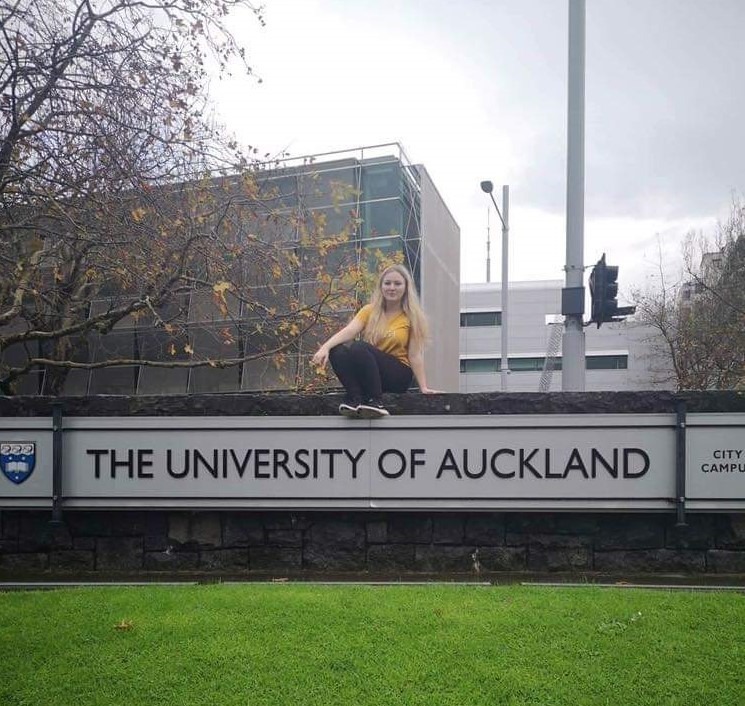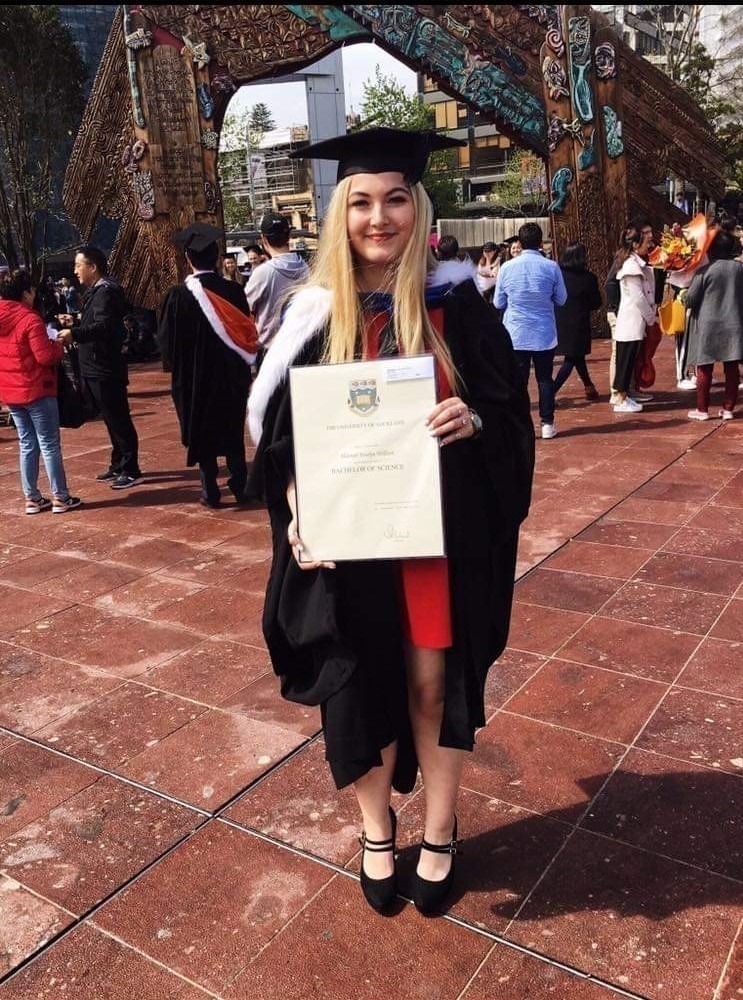Living abroad and travelling is very glamorised and thanks to social media we only tend to hear of the good rather than the challenges.
While Hannah Willson had the opportunity to study for her degree in three countries, she had people back home thinking she was living the dream. However, they were not to know she was sick from the damp in her house, had rats in her bed, she was sleep-deprived, anxious, exhausted or overwhelmed by bouts of homesickness.
“I started my first year of university at Kingston studying Geography as an undergrad. I focused my search on universities that had great options for exchange programs. I moved to Kingston in September 2016, full of excitement moving back to my home city of London after almost 10 years.
“I loved being back. Where I grew up in Hayes, I was surrounded by kids of all different cultures and backgrounds, and it was honestly the best start to life I could ever have.
“This set in stone my appreciation for any and everyone that is different to me. It was probably the reason why I was so interested in human geography at a young age. I had a particular interest in people, and how human history, politics, social, and economic issues, really shape and mould people’s life courses globally.
Desire to travel
“At a young age, I visited my older brother in New Zealand with my family. This trip really opened my eyes and was the start of my love for geography. If you do not know much about New Zealand, it is honestly paradise on Earth, with a side of unearthly geographical features. I was in awe. I knew I would return to this land someday.
“Fast forward to my first year of uni. My boyfriend, a Kiwi, brought me into the Kiwi/Australian immigrant community in London. We did a few small European trips together, and I also learnt to travel in my home city like a tourist, and appreciate London for how incredible it truly is.
“My time at Kingston was fun. First-year geography was an incredible foundation for my journey ahead. I had very supportive lecturers and incredible classmates.
“During this time, I applied for my exchange and in March 2017, I found out that I had a place at the University of Newcastle Australia for a yearlong exchange. I was so excited about this opportunity, but I can’t deny, at the time, there was a little feeling inside that New Zealand was where my heart needed to be.
Culture shock
“I made a lot of international friends and of course some Aussies. But I had a big culture shock living in Australia.
“At the time when I moved, it was winter, the UK summer, and it was hot. Other small things like new power plugs, public transport, the money, the slang, different social norms, not being able to buy alcohol in supermarkets, but I learnt and adapted, and my appreciation grew.
“Towards the middle of the semester, I still knew in my heart, New Zealand was where I need to be. So on the off chance, I contacted KU international and asked the question. Someone had dropped out, and the place at Auckland for semester one 2018 was mine. I was ecstatic! For the remainder of my time in Australia, I tried to make the most of every minute.
“In February 2018, it was time to start my studies at the University of Auckland. Within weeks, it felt like home. I started to make more local friends this time and put myself out there more. But again, I still experienced culture shock, naturally.
“One of my favourite parts of studying in Auckland was that the Maori perspective was at the forefront, and challenging western ideas. This gave me a whole new world view, which I could never have had studying back home.
Not ready to leave
“It didn’t take long for me to realise my time to leave was approaching fast, and I truly wasn’t ready to go. So I began researching how to stay and finish my degree. It sounded mad.
“Everyone I asked said it hadn’t been done before. This caused a lot of stress and uncertainty. I had no idea where I would be in the world. Then, everything fell into place. I couldn’t have done it without the support from Kingston University, University of Newcastle, and the University of Auckland. I spent many hours emailing and on the phone trying to get the right information and it was worth it in the end.
“Because I had become an international student, I no longer had government support, so I was relying on the income I made from part-time work to cover living costs and help from my parents where they could. New Zealand isn’t the cheapest place to live, so this was a struggle.
“It meant I didn’t have the freedom of having to cut down hours near exams or participate in university societies, as much as I would have liked. During this year in New Zealand, it had become clear that I had developed a panic and anxiety disorder. I had put so much pressure on myself to do well.
“As time went on, I had a lack of stability and uncertainty in my life. I lived in fear of failing at university. If I failed, I was worried that I wouldn’t be able to continue my studies and would be forced to go home. I was worried about letting my parents down. I wasn’t in the best living conditions either, which didn’t help- fortunately, I was living with my partner and great flatmates at the time.
“I became extremely anxious towards exams, and I had trouble with my sleep. It wasn’t till the end of 2018 that I was forced to tell my parents about my mental health. I returned to the UK over Christmas to spend time with family and worked at a local pub. I visited my KU friends and embraced my home but I was really beginning to question my identity. Reverse culture shock is real. In my home town, I was being questioned about where I am from.
“I had been away from the UK for a year and a half, visiting home was truly eye-opening on how much I had changed and experienced. In January I made the move back to New Zealand for the final semester of my degree.
Mental health pressures
“This year, my main focus was on getting my mental health in a good place, as I knew I couldn’t finish my degree without it. I made time to lift weights, be outdoors, keep a journal and socialise more. I made the best of my living situation and made my room as cosy and tranquil as I could. I nailed my sleeping pattern and I followed the medical advice of my doctor and had a medication plan for my anxiety alongside therapy.
“I started to grow into the person I wanted to be. Only thing was, six weeks in, I crashed. My body was exhausted. I was trying to do too much. So I had to take things slower. A huge tipping point was falling sick and needing to take things down a notch. It hit me financially and ruined my momentum. Around this time, I had also been away over the uni break, and upon return after a couple of weeks, to find rats in my bed- that was a low point.
“From this point, I should have moved out for my own well-being. I was always sick and didn’t enjoy coming home. But it was the people that made me want to stay, I had great flatmates- like family.
“The final weeks of my degree were hard. The fear of failing was high. If I didn’t pass, I wouldn’t have been able to apply for a post-study work visa, and wouldn’t have been able to continue living here. I was so scared that I had risked everything that at the final point, I may have not been good enough.
“But I pulled through. I managed to complete my last ever exam of my degree without a panic attack, and I was so proud of my achievement. I celebrated how any Brit would and hit up the pub with my friends.
Uncertain future
“The time after my degree was extremely turbulent. The state of the flat raised a lot of tension, and inevitably, things fell apart. I was fortunate enough that my brother could take me in. Moving into a homely environment was the best thing I could have possibly done for my mental and physical well-being.
I struggled to find a new place to live, I was no longer a student, and this was with the added stress of not knowing whether I’d passed my degree or would be able to stay in New Zealand. I found out I had passed my degree! I found it challenging when looking for postgraduate work, I would say being on a visa made this more difficult.
“I continued working at Auckland University of Technology full time until my student visa came to an end and I ended up on interim visa (a visa which allows you to stay in New Zealand whilst awaiting a decision on your visa application). My visa process was challenging. So much paperwork!
“I had to have a full and additional medical, because of the length of visa and that I have anxiety on my record. The doctor was confident that my mental health was in a good place. And this set me in good stead for my visa. During this time, some, unexpected challenges arose. Let’s just say, an almost very negative and dark experience, turned into the world is on my side, I put this down to good karma.
‘Stability is underrated’
“I was granted a three-year work visa and left me with the wisdom of my caseworker, that ‘you just need to hold your head high and keep doing what you are doing’. So I sure as hell held my head high. That week, my parents arrived and attended my University of Auckland graduation with my partner. It was such a proud and special moment.
“Only now, in December, six months after finishing my degree, I can finally say I am feeling a sense of being settled and home. I am back living with my partner after a year of long-distance, in a stable home environment, and working full time. I feel so much happier knowing my home, work and status in New Zealand are stable for the foreseeable future. Stability is underrated.
“The best part of studying in three countries was that I learnt so much from multiple different world views. The most challenging thing was 100 per cent the admin side (both immigration, and uni/credit transfer process) and overcoming my mental health issues which had stemmed from moving overseas and the processes and challenges that came with it.
“You really have to want to be where you are and do what you are doing. Studying abroad is not for the light-hearted. It is hard. I truly made life hard for myself. But, I would never change any of it for the world, for it has made me who I am today, and I am so proud of myself.
“Living overseas and living a nomadic life can be heavily romanticised, but it’s not all you see on Instagram. Like I said, its real life, it’s hard- but I wouldn’t change it for the world.
“My degree is without a doubt unique to me. No one has an experience like mine in the world. I am incredibly humbled by the opportunities I had, and I know it has set me well in life. My Geography degree is so special to me, as it signifies my academic development and my growth as a person. I stand out, and I am different.”
Her advice to study abroad students is to:
- Think clearly about your destination and what you want to gain from your experience
- Flexible flights! I moved nearly all of my flights I’d initially booked before I left London through STA travel Kingston. Best thing I could have done. Saved me so much money in the long run
- Have savings to ensure you can have the best time abroad
- Integrate with locals
- Learn a new language
- Communicate with home- FaceTime and social media are a lifesaver for staying connected with loved ones
- Find home comforts abroad- learn to cook some of your favourite dishes from home, share it will the locals and other friends you make on exchange
- Look after your mental health, you are not alone so asking for help when you need it
- Practice journaling to keep organised
- Make sure to get out and about and enjoy the moment you are in
- Embrace the change- and try not to compare to home.




